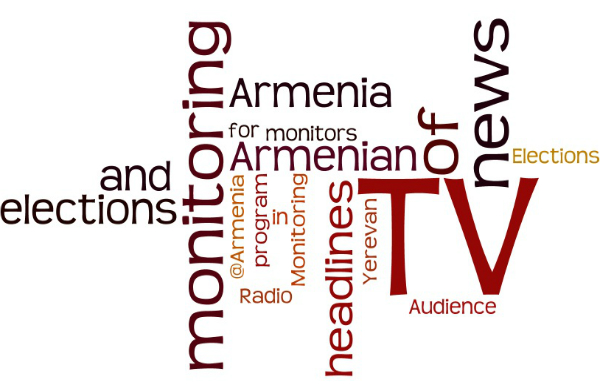
Election campaign season is a unique test for news outlets and journalists. Besides the fact that legalized preaching (broadcasting election videos and reports) is an opportunity for TV stations to make money, it’s also quite an unpleasant and long-term headache. TV companies are required to ensure balanced coverage of political parties during the campaign period — more so when they’re warned on several fronts that they’ll be monitored. Moreover, they are instructed to accept this monitoring and refrain from obvious violations and biased coverage on air.
 It’s noticeable that local TV companies are strictly limiting and controlling the dose of political campaigning in news broadcasts and talk shows. They measure to the second the duration of each campaign video and present on air candidates or parties participating in the parliamentary election with a particularly emphasized sort of neutrality. There’s the impression that all the TV stations have perceived this instruction to be balanced as matter of honor — or, at least an effort to maintain the image of an unbiased and professional channel. But the most interesting thing is that the habit of delivering irony has disappeared from the screen (in any case, I haven’t seen it yet), which is usually expressed in the special pace and emphasis of the producer’s or news commentator’s voice (regardless of the message in the video). This irony usually referred to opposition rallies, while the ruling authorities’ every move was presented in proud and positive overtones. Now, it seems, on air everyone is equal — even speciously they’re equal.
It’s noticeable that local TV companies are strictly limiting and controlling the dose of political campaigning in news broadcasts and talk shows. They measure to the second the duration of each campaign video and present on air candidates or parties participating in the parliamentary election with a particularly emphasized sort of neutrality. There’s the impression that all the TV stations have perceived this instruction to be balanced as matter of honor — or, at least an effort to maintain the image of an unbiased and professional channel. But the most interesting thing is that the habit of delivering irony has disappeared from the screen (in any case, I haven’t seen it yet), which is usually expressed in the special pace and emphasis of the producer’s or news commentator’s voice (regardless of the message in the video). This irony usually referred to opposition rallies, while the ruling authorities’ every move was presented in proud and positive overtones. Now, it seems, on air everyone is equal — even speciously they’re equal.
A political party organized a press conference and there were unexpected or predictable incidents: all this is reported on television, which has quickly become a neutral zone, without obvious stinging remarks and without throwing “piles of dirt” on parties or candidates. Even when there are cases of smear campaigns or “healthy criticism,” they don’t seriously perturb the tranquility of the neutral zone. Absent on television, of course, are pointed debates, but this is the fault of not the TV stations but the political parties (mainly the ruling party, which avoids televised battles, while those parties that want to debate only with the ruling authorities “take offense” to this and as a result, refuse to face-off on air with parties of a lesser weight). 
Now, when the campaign race is intensifying, a neutral zone (i.e. television) is something akin to an inviolable, protected space. And the more this space becomes neutral, the more the role of journalists lessens.
TV reporters are trying to remain impartial, choosing not to say more about this or that political party than the party wants. A paradoxical situation emerges: to be impartial, the reporter becomes more and more impersonal (that is, loses her distinct personality), bringing to naught the information she had previously and presenting the parties from a clean slate. Sometimes there’s the impression that many of the reports were filmed and edited with the efforts of the political parties themselves and delivered to the TV stations to be broadcasted.
The permissible length of political advertising is maintained, election campaign reports are balanced, and the monitoring continues… There’s at least specious peace.
Nune Hakhverdyan
The views expressed in the column are those of the author's and do not necessarily reflect the views of Media.am.


Add new comment
Comments by Media.am readers become public after moderation. We urge our readers not to leave anonymous comments. It’s always nice to know with whom one is speaking.
We do not publish comments that contain profanities, non-normative lexicon, personal attacks or threats. We do not publish comments that spread hate.